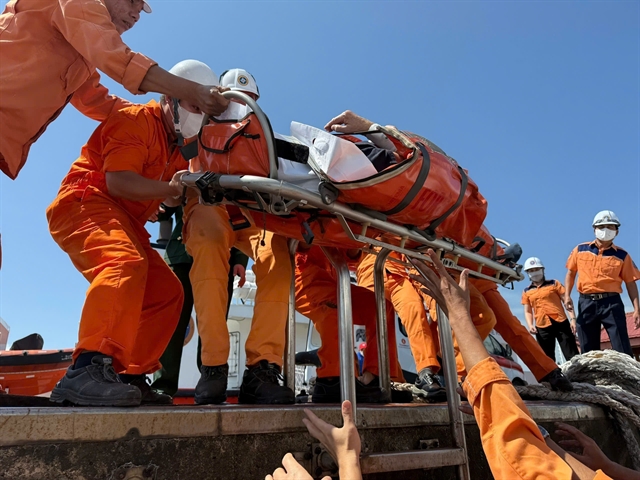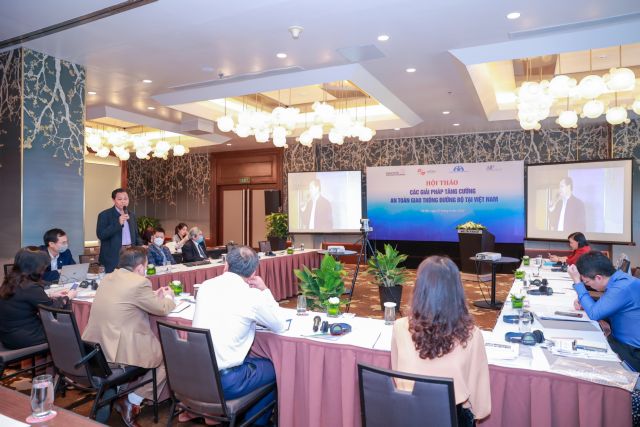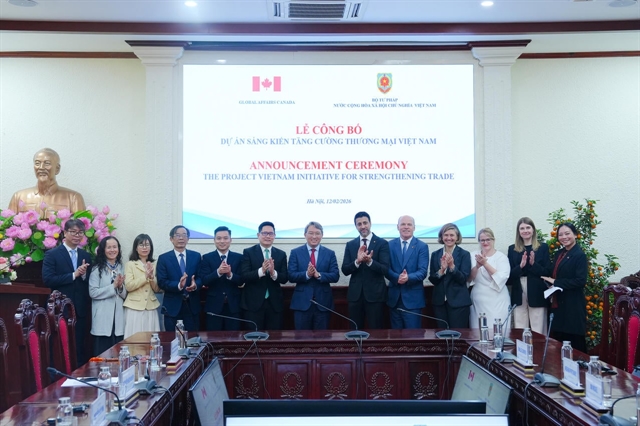 Society
Society


|
| A workshop on collaboration with legislative agencies, as part of the nationwide campaign amending road laws in Việt Nam, has been held by AIP Foundation in collaboration with the National Traffic Safety Committee. — Photo courtesy of AIP Foundation |
HÀ NỘI — AIP Foundation in collaboration with the National Traffic Safety Committee (NTSC) has hosted a workshop focusing on collaboration with legislative agencies, as part of the nationwide campaign amending road laws in Việt Nam, supported by the Global Road Safety Partnership (GRSP) and the Global Health Advocacy Incubator (GHAI).
This marked an important step to contributing to lasting legislation reform making our roads safer. The key participants of this workshop were delegates who play a key role in finalizing the proposed legislation, including reporting to the Standing Committee of the National Assembly.
Professor Historian Dương Trung Quốc, a former National Assembly deputy, said “The urbanisation in Việt Nam is closely linked with road transport. Therefore, it is highly important to pay attention to people’s interests and concerns in the law-making process in order to avoid a public negative reaction. We should treat all the work equally, and have appropriate solutions. Communication and education are very important when advocating and enforcing laws”.
The member of the legislative agencies received in-depth information regarding the findings on the current status of road safety risk factors. In addition, scientific evidence was shared together with international experience from GRSP and GHAI, as well as detailed recommendations related to the behavioral risk factors to be included in the law amendments.
In addition to presentations of national top scientists and academia about the current legislations, advantages and constraints, as well as international experiences on the 5 risk factors, the workshop participants were delighted to welcome practical sharing from Dr. Roberto Araneta Valera, Deputy Director of the Law Enforcement Service of the Land Transportation Office, and Dr. Natasha Daphne Marcelo, Project Manager for Road Safety of ImagineLaw. They jointly shared the experience advocating for the use of child restraint systems to protect children in motor vehicles in the Philippines.
The key recommendations regarding the top 5 behavioral risk factors are:
All recommendations were presented in full detail to the legislative agencies. Policy-makers from key agencies at the Ministry of Transport, Ministry of Public Security, Ministry of Health, and other key relevant agencies benefitted from the in-depth technical report and recommendations from leading experts to amend the laws and ensure safer streets and roads for life in Việt Nam.
Lưu Văn Đức, permanent member of the NA Nationalities Council, stated that “I highly appreciate the in-depth technical report, and at the same time fully agreed with recommendations in the report. I support that these recommendations are to be sent to the National Assembly. I also agreed with Professor Dương Trung Quốc that it is important to conduct communication campaigns and education programs that are appropriate to specific population groups. We are not just aiming at collecting penalty charges, but people’s attitude and compliance. I also encourage the application of advanced technology for legal enforcement activities.” — VNS




